Discover Global Dispatches -- World News That Matters
Global Dispatches -- World News That Matters

Global Dispatches -- World News That Matters
Author: Global Dispatches
Subscribed: 3,151Played: 163,191Subscribe
Share
© 2021
Description
The longest running independent international affairs podcast features in-depth interviews with policymakers, journalists and experts around the world who discuss global news, international relations, global development and key trends driving world affairs.
Named by The Guardian as "a podcast to make you smarter," Global Dispatches is a podcast for people who crave a deeper understanding of international news.
Named by The Guardian as "a podcast to make you smarter," Global Dispatches is a podcast for people who crave a deeper understanding of international news.
1092 Episodes
Reverse
A ceasefire is holding in Gaza. Aid is beginning to flow. The remaining Israeli hostages have been released, as have nearly 2,000 Palestinians from Israeli detention. This has been a truly remarkable day in the Middle East. But can this positive momentum be sustained? I recorded this conversation with Matt Duss of the Center for International Policy just moments after Donald Trump met with an impressive array of world leaders in Sharm el-Sheikh, Egypt, in a ceremony designed to cement his personal investment in this peace plan. We kick off by discussing the significance of the spectacle and ceremony in Sharm el-Sheikh, then have a longer conversation about how the ceasefire came together and the many pitfalls that remain. This ceasefire is fragile. Hamas is reconstituting. And the Israeli government remains opposed to a viable Palestinian State. But this is nonetheless a significant inflection point after two years of brutal war.
UNGA is over. But its legacy lives on. We recorded this episode as news broke of a potential ceasefire between Israel and Hamas, and so we look back at UNGA80 to trace the ways in which the world’s largest diplomatic gathering may have provided some key momentum for a breakthrough on Gaza. Mark and Anjali also go deep on a new Gang Suppression Force that the Security Council just authorized for Haiti. But can this international intervention in Haiti succeed when so many before it have failed? Finally, Mark and Anjali make their Nobel Peace Prize picks. Spoiler alert — it ain’t Donald Trump. Unlock full access to this episode with a 40% discount. https://www.globaldispatches.org/40percentoff
On September 16th, Morocco became the 60th country to ratify the High Seas Treaty, triggering a countdown to January, when the treaty will officially enter into force. The High Seas Treaty establishes a kind of “rules of the road” for international waters that lie beyond the jurisdiction of any single country—particularly around conservation and the preservation of ocean biodiversity. At the core of the High Seas Treaty is the creation of Marine Protected Areas—think of them as national parks for the high seas. And even though the treaty has not yet entered into force, it is already influencing ocean conservation efforts, according to my guest today, Nichola Clark, a senior officer for ocean governance at the Pew Charitable Trusts. We begin by discussing why the international community felt the need for a High Seas Treaty in the first place, and then trace the story of how this agreement came to life. We wrap up with a conversation about what the treaty has already accomplished—and what it may achieve in the near future. This episode is produced in partnership with Lex International Fund, a philanthropic initiative dedicated to strengthening international law to solve global challenges. It’s part of our ongoing series highlighting the real-world impact of treaties on state behavior, called “When Treaties Work.”
A genocidal militia called the Rapid Support Forces has been laying siege to the city of El Fasher, in Darfur, for nearly 500 days. But in recent weeks, the situation has grown far worse. Some 250,000 people are now trapped in the city and are enduring relentless bombardment from drones and artillery. Food is scarce, and an untold number of people are starving to death. To make matters worse, recent moves by the Rapid Support Forces suggest they may be preparing for an all-out assault on the city. This is a pivotal moment in Sudan’s civil war, which erupted in April 2023 when two generals—once allies in toppling a civilian-led government—turned their guns on each other, unleashing what is now the world’s largest humanitarian crisis. After two and a half years of fighting, the Sudanese Armed Forces control most of the country’s east, including Khartoum and a key port city. The Rapid Support Forces, meanwhile, hold much of the west, including resource-rich Darfur—with one critical exception: Darfur’s historic capital, El Fasher. Joining me to discuss this precarious moment in Sudan’s war and what might finally bring an end to the conflict is Noaman Elwaleed Mousa, a PhD student in political science at the University of California, Los Angeles, who studies civil wars in Africa. We begin with the situation on the ground in El Fasher and the broader significance of this battle for Sudan’s future.
In 1995, there was a landmark meeting on gender equality in Beijing: the Fourth World Conference on Women. The conference produced the Beijing Declaration and Platform for Action, a highly influential blueprint for advancing women’s rights. It was at this conference that then–First Lady Hillary Clinton famously declared, “Human rights are women’s rights and women’s rights are human rights, once and for all.” Last week, at the United Nations General Assembly, there was a 30-year commemoration of this landmark conference, which has become a touchstone for advocates around the world — particularly from civil society. Today, I’m joined by two of those advocates: Bani Dugal and Liliane Nkunzimana, representatives of the Baha’i International Community to the United Nations. They explain why the conference 30 years ago was so significant, how it continues to influence debates on gender equality today, and how to keep advancing gender equality in a profoundly different geopolitical context three decades on. This episode is produced in partnership with the Baha’i International Community, an NGO that represents the worldwide Baha’i community at the UN and other international forums, where it emphasizes that recognizing humanity’s interconnectedness is key to a shared global future. The Baha’i International Community recently released the book "In Full Partnership: Thirty Years of Women’s Advancement at the United Nations and Beyond, " which honors 30 years since the landmark Fourth World Conference on Women in Beijing and the creation of the Beijing Declaration and Platform for Action. You can find the book at BIC.org.
Over the last two weeks, the United States has at least twice bombed boats in the Caribbean that the White House claims were smuggling drugs to the United States, killing an unknown number of people on board. This is extraordinary. Under normal circumstances, the United States Navy or Coast Guard would interdict alleged drug smugglers and turn them over to law enforcement for prosecution. But the Trump administration is apparently unleashing the full weight of the U.S. military against people it deems to be smuggling drugs. What’s more concerning, according to legal experts across the spectrum, is that these targeted killings do not seem to be operating under any apparent legal framework. The administration is using the language of the War on Terror to justify these killings, but there has been no authorization for the use of military force against drug smugglers. Nor has the administration put forward a legal rationale for these strikes. And all this comes amidst an unprecedented American naval buildup in the Caribbean — a show of force against the regime of Nicolás Maduro. “It’s truly extraordinary for the U.S. government to be conducting premeditated killing of individuals merely for suspected drug smuggling,” says my interview guest Brian Finucane, senior advisor at the International Crisis Group. We begin by discussing what is known about these two strikes, before turning to a longer conversation about the implications of using the language and tools of counterterrorism to kill alleged drug smugglers absent any clear legal constraint. https://www.globaldispatches.org/40percentoff
It was Donald Trump’s fifth speech before the United Nations General Assembly. It was also his most rambling. For 55 minutes, the President of the United States riffed: on migration, windmills, hot air, London’s mayor, offshore oil in Aberdeen, even the flooring and décor of UN headquarters. At one point, Trump told the assembled world leaders: “Your countries are going to hell!” But was there a method to this madness? What can we discern about U.S. foreign policy and Trump’s approach to the United Nations from this speech? Joining me for a timely conversation on these questions and more are Anjali Dayal and Maya Ungar—two seasoned UN watchers. Anjali Dayal, of course, is my To Save Us From Hell co-host and a professor of international relations at Fordham University. Maya Ungar is a UN analyst at the International Crisis Group. We spoke just moments after Trump’s speech concluded, beginning with our knee-jerk reactions to a very odd address before turning to a longer conversation about what Trump’s UNGA remarks reveal about American foreign policy and its approach to the UN. https://www.globaldispatches.org/40percentoff
Immunization has transformed the health trajectory of millions in Africa — but the job is far from done. This discussion moves beyond vaccines as a medical intervention, framing them instead as a trust-building exercise between communities and health systems. You’ll come away with a clear sense of what it will take to protect Africa’s health gains and prepare for future threats. Helen Clark offers high-level insights on vaccine diplomacy, while Dr. Jamal Ahmed unpacks the operational and political hurdles to reaching every child. Dr. Esias Bedingar adds a front-line perspective on combating misinformation and delivering care in fragile settings. Vaccines have saved millions of lives across the continent — but more work remains. This episode explores both the progress made and the gaps that still need to be closed. Guests Helen Clark, former Prime Minister of New Zealand, former Director of UN Development Program and member of the Elders Dr. Jamal Ahmed, WHO Director for Polio Eradication Dr. Esias Bedingar, Program Manager at Big Win Philanthropy and former Special Advisor to the Prime Minister of Chad. Background Materials Vaccination Progress in Africa – Millions of Lives Saved, WHO Africa
Africa’s future will be written by its girls and women — if they have the resources and rights to lead. Graça Machel calls for a generational shift in how girls’ education and leadership are supported, while Françoise Moudouthe challenges donors and policymakers to back feminist movements with flexible, sustained funding. Satta Sheriff brings the voice of a new generation, connecting women’s leadership to broader fights for climate justice, peace, and economic inclusion. This episode is full of hard truths about the barriers girls and women face, paired with inspiring examples of what happens when those barriers come down. Guests Graça Machel, women’s and children's rights advocate; former freedom fighter and first Education Minister of Mozambique; co-founder of The Elders. Françoise Moudouthe, CEO of the African Women’s Development Fund Satta Sheriff, Human Rights Activist & African Union Panel of the Future Member Background Materials Women’s Rights in Review 30 years after Beijing, UN Women Futures Africa: Trends for Women by 2030, The African Women’s Development Fund African Young Women B+25 Manifesto, African Union
Hundreds of presidents and prime ministers are coming to the UN for the annual opening of the General Assembly. UNGA officially kicked off on September 9, but the big events—including the parade of speeches from world leaders—begin on September 22. In this special episode of To Save Us From Hell, Mark and Anjali preview the key storylines, speeches, events, and encounters that will shape the agenda at this, the 80th anniversary of the United Nations. This is always one of our most popular episodes because we bring you a true insider’s account of what to watch for at UNGA80. And this year, we’re offering a special 40% discount off our regular subscription price so that as many of you as possible can access one of our most anticipated episodes of the year. https://www.globaldispatches.org/40percentoff
A few weeks ago, my To Save Us From Hell co-host Anjali Dayal and I joined Tammam Aloudat, CEO of The New Humanitarian, for an episode of their podcast ReThinking Humanitarianism. The questions Tammam posed—and the topics we explored—were big-picture ones: how can the UN, a fundamentally liberal institution shaped by liberal values, function and survive in an era when those very values are under sustained challenge? It was a thoughtful, wide-ranging conversation that I’m delighted to share directly with Global Dispatches subscribers. If you want even more UN-focused content, consider becoming a paying subscriber at GlobalDispatches.org. A subscription gives you full access to To Save Us From Hell, my premium podcast about the UN, as well as UN Dispatch, where I publish regular UN-focused analysis. We’re running a UNGA discount this month: 40% off. Subscribe now to unlock my personal UNGA preview along with all UNGA-related coverage. You can sign up at GlobalDispatches.org or use this direct link: https://www.globaldispatches.org/40PercentOff
Education in Africa must do more than keep up — it must leap ahead. Vimbai Masiyiwa champions entrepreneurship education that sparks job creation, while Minister Serigne Mbaye Thiam draws lessons from reforming Senegal’s school system for a digital future. Tina Muparadzi links skills development directly to economic transformation, making the case for public–private partnerships that align learning with labor market needs. The conversation digs into how digital literacy, innovative financing, and gender equality can work together to equip Africa’s next generation. It’s a blueprint for education that prepares students for the future of work and leadership. Guests Minister Serigne Mbaye Thiam, Global Partnership for Education High-Level Envoy and Advisor for Education and former Minister of Education of Senegal Ms. Tina Muparadzi, Executive Director for the Education and Transitions programming platform at Mastercard Foundation’s Education, Learning & Youth Livelihood Team Vimbai Masiyiwa, Entrepreneur & CEO of Batoka Africa Background Materials Educating Girls Generates Economic Transformation In Africa, Mastercard Foundation Why Africa Urgently Requires Transformation of its Education Systems, Brookings Education Multiplies Possibility: Young People's Call for Action, Global Partnership for Education
Cabo Delgado is Mozambique’s northernmost province, bordering Tanzania. Since 2017, it has been gripped by a violent insurgency, when Islamist militants began attacking villages, towns, and government forces. The region is also home to major natural gas deposits, in which the French energy giant Total has invested heavily. But after a wave of attacks in 2021, Total suspended operations. Foreign troops—including forces from Rwanda and the Southern African Development Community—have since helped the Mozambican government regain some territory. Still, sporadic attacks continue, and the humanitarian crisis remains acute. In recent weeks, there has been a sharp uptick in violence, displacing about 60,000 people. Joining me to discuss the ongoing crisis in Cabo Delgado, the role of mineral extraction in fueling the conflict, and what the Mozambican government and international community can do to curb the violence is Romao Xavier, Oxfam in Southern Africa's Country Representative for Mozambique. We begin by examining the latest surge in violence before taking a broader look at what drives this conflict—and what it might take to bring it under control. Support our humanitarian journalism with your paid subscription https://www.globaldispatches.org/
When people don’t trust their institutions, the social fabric of a society is weakened. But that “trust deficit” can — and must — be closed. In this episode of our Future of Africa series, we explore innovative and practical approaches to enhancing trust and cooperation between people and their institutions -- from grassroots communities to global multilateral forums. Featuring Samson Itodo, a renowned advocate for electoral integrity and youth participation in Nigeria; Joseph Asunka, CEO of Afrobarometer; Chernor Bah, Minister of Information and Civic Education from Sierra Leone; and Chimdi Neliaku, a member of the African Union’s Panel of the Future and Special Assistant to the Hon. Speaker, House of Representatives of Nigeria on Interparliamentary Affairs and Public Relations, this conversation showcases positive pathways to inclusive governance. Drawing on inspiring personal journeys, Samson shares insights from mobilizing young voters in Nigeria’s democratic processes; Chernor brings decades of advocacy experience as a youth leader who successfully integrated young voices into high-level peace, reconciliation, and education campaigns—now working from within government to broaden civic engagement and transparency in Sierra Leone; Chimdi reflects on empowering African youth within AU initiatives, showing how the next generation positively shapes governance; and Joseph brings years of public opinion research to explain the drivers of this trust deficit. Together, they highlight how inclusive leadership and effective citizen-government dialogue foster stronger trust, accountability, and intergenerational cooperation. Effective governance depends on mutual trust—between citizens, governments, institutions, and international organizations. This episode explains how that can be achieved. Samson Itodo represents dynamic young leadership in civil society – he has organized young voters and driven campaigns like “Not Too Young to Run,” giving him on-the-ground perspective on citizens’ democratic aspirations and frustrations. Joseph Asunka offers a data-centric perspective, drawing from Afrobarometer’s extensive public opinion research across Africa. His expertise in governance, accountability, and citizen engagement sheds light on the continent’s internal dynamics influencing its external relations. Chernor Bah brings unique insights from both grassroots advocacy and government leadership, having led global youth initiatives, co-founded the A World at School campaign, and now as Sierra Leone’s Minister of Information and Civic Education, actively broadening civic engagement and strengthening trust in government. Chimdi Neliaku represents the young communities and grassroots viewpoint – a young changemaker experienced with the Global Shapers Community and AU’s youth initiatives, advocating for the next generation to have a seat at the table.
A new study out of Kenya shows that one of the most impactful ways to reduce infant and child mortality is to provide cash—no strings attached—to pregnant women. A randomized controlled trial by economists from UC Berkeley and Oxford University found that unconditional cash transfers reduced infant mortality by 48% and under-5 child mortality by 45% in rural Kenya. These results suggest that this intervention is as impactful for improving child health as the provision of vaccines or antimalarial drugs. I'm joined today by Dr. Miriam Laker-Oketta, Senior Research Advisor at GiveDirectly, the nonprofit that carried out the cash transfers on which this research is based. In our conversation, Dr. Laker-Oketta explains why well-timed cash transfers to women late in pregnancy can so dramatically improve health outcomes. She also discusses how this new study adds to the growing body of evidence on the impact of unconditional cash transfers for people living in poverty in the developing world—and why such interventions are logistically simple yet politically difficult to scale. Support our work with a paid subscription to Global Dispatches! https://www.globaldispatches.org/
Making promises on financing for development is the easy part. Following through on them is hard. Ambassador Chola Milambo speaks frankly about turning global financing commitments into tangible benefits for African communities. Chidi Okpala highlights the role of innovative private-sector partnerships, while Tumi Mkhizi Malebo offers a youth perspective on making finance work for the next generation and Nabila Ageule emphasizes the particularly important role of young women. Together, they map out what it takes to bridge the gap between conference promises and action on the ground, from transparency and inclusive planning to youth-led monitoring of how funds are actually spent. If you’ve ever wondered why big financial agreements rarely reach the people they’re meant to serve, this episode offers both the diagnosis and the solution. Guests Ambassador Dr. Chola Milambo, Zambia’s Permanent Representative to the United Nations Chidi Okpala, Executive Director of Group Integration and Strategy, Heirs Holdings Nabila Aguele, Chief Executive, Nigeria at the Malala Fund Tumi Mkhize Malebo, United Nations Foundation Partnerships Next Generation Fellow Background Materials Africa: Unlocking Africa's Future - The Imperative of Domestic Resource Mobilization, All Africa Foresight Africa: Top Priorities of the Continent 2025-2030, Brookings Institution Our Future Agenda Quarterly Rewriting the Rules of Finance, Our Future Agenda
In 2023, the United Kingdom hosted the world’s first major international summit on the risks of advanced artificial intelligence. That Bletchley Park gathering kicked off a series of high-profile summits — in Seoul in 2024, in Paris earlier this year, and with India set to host the next in 2026. But here’s the big question: are these summits actually building the guardrails the world needs to keep AI safe — or are they falling short? My guest today, Robert F. Trager, says the answer depends on whether this summit series is reformed. Trager is Co-Director of the Oxford Martin AI Governance Initiative, which recently published a roadmap for how the AI Summit Series can live up to its potential. We dig into those recommendations, and we also take stock of what these summits have accomplished so far — and what’s at stake if they fail. This episode was supported through a grant from the Tarbell Center for AI Journalism Report mentioned: The Future of the AI Summit Series
What does it mean to make peace with nature — and why could that be the key to lasting peace between people? Former Colombian President Juan Manuel Santos shares the extraordinary indigenous mandate that shaped his leadership, while Hindou Oumarou Ibrahim explains how climate shocks in Africa are driving conflict and migration. Khouloud Ben Mansour brings in the youth, peace, and security lens, stressing that climate justice must include women and young leaders at the table. Across the conversation, you’ll hear why African knowledge systems are vital to global climate solutions, and how reframing climate as a security issue could shift the way the world responds. Guests Hindou Oumarou Ibrahim, Chair of the Planetary Guardians and President of the Indigenous Women and Peoples Association of Chad Khouloud Ben Mansour, Tunisian junior diplomat and former African Union Youth Ambassador of Peace Juan Manuel Santos, former President of Colombia, Nobel Peace Prize laureate, Chair of The Elders Background Materials Cooperation on Climate, Peace and Security is Needed Now, The Elders Africa Climate Security Risk Assessment, Africa Union Planetary Health Check, Planetary Guardians
The past week has seen a frenzy of diplomatic activity on Ukraine, culminating in Donald Trump’s extraordinary announcement that he will host Vladimir Putin in Alaska for talks on the war. Setting aside the propriety of Putin visiting the United States (he launched this war of aggression and is wanted by the ICC for the systematic abduction of Ukrainian children) what could such a summit actually achieve? Would Ukraine really be willing to trade land for a ceasefire? And would Putin simply use a pause in hostilities to regroup? I put these questions and more to Evelyn Farkas, a longtime Ukraine specialist who is now the CEO of the McCain Institute. We spoke just hours before Trump announced the Alaska summit and we kick off with a discussion about the current state-of-play of the conflict on the ground before discussing the prospects of a diplomatic solution to this conflict.
Africa is the world’s youngest continent — and its future is everyone’s future. By 2030, 70% of sub-Saharan Africa’s population will be under the age of 30. By century’s end, one in three people on the planet will be African. What happens in Africa will shape the course of the 21st century. That’s why Global Dispatches is proud to launch a bold new podcast series: The Future of Africa. Produced in partnership with the African Union, The Elders, and the United Nations Foundation, this series explores how Africa’s rising generation is transforming the world—and how global leaders are engaging with this dynamic shift. Hosted by the powerhouse Kenyan journalist Adelle Onyango, The Future of Africa features intergenerational conversations between former presidents, Nobel Peace Prize winners, diplomats, and trailblazing young leaders. These are solutions-driven discussions tackling the most urgent issues of our time: climate, education, economic growth, governance, and more. Africa’s influence on global decision-making is rising as the world’s youngest and fastest-growing continent — but will young people be given the power to shape it? Chukwuemeka Eze lays out why legitimacy at home is the foundation for influence abroad, while Chido Mpemba champions young people’s leadership in every sphere of governance. Jake Obeng-Bediako warns against “waithood” as the lost years between education and meaningful leadership, and calls for young Africans to be decision-makers. Together, they highlight ways young African countries are navigating geopolitical shifts, increasing their role in multilateral forums, and leveraging demographic and economic momentum. This is a call-to-action for anyone who believes Africa should lead as an innovator on the world stage. Guest Speakers Jake Bediako, Director of Policy and Implementation for Global Citizens Move Afrika Initiative. Dr. Chukwuemeka Eze, Director for Democratic Futures in Africa at the Open Society Foundation Chido Mpemba, formerly the African Union’s Special Youth Envoy and currently the Advisor to the African Union Commission Chairperson for Women, Gender and Youth.


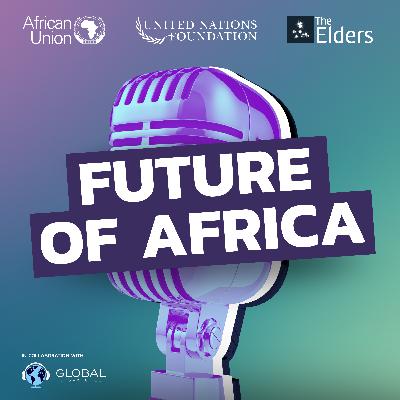
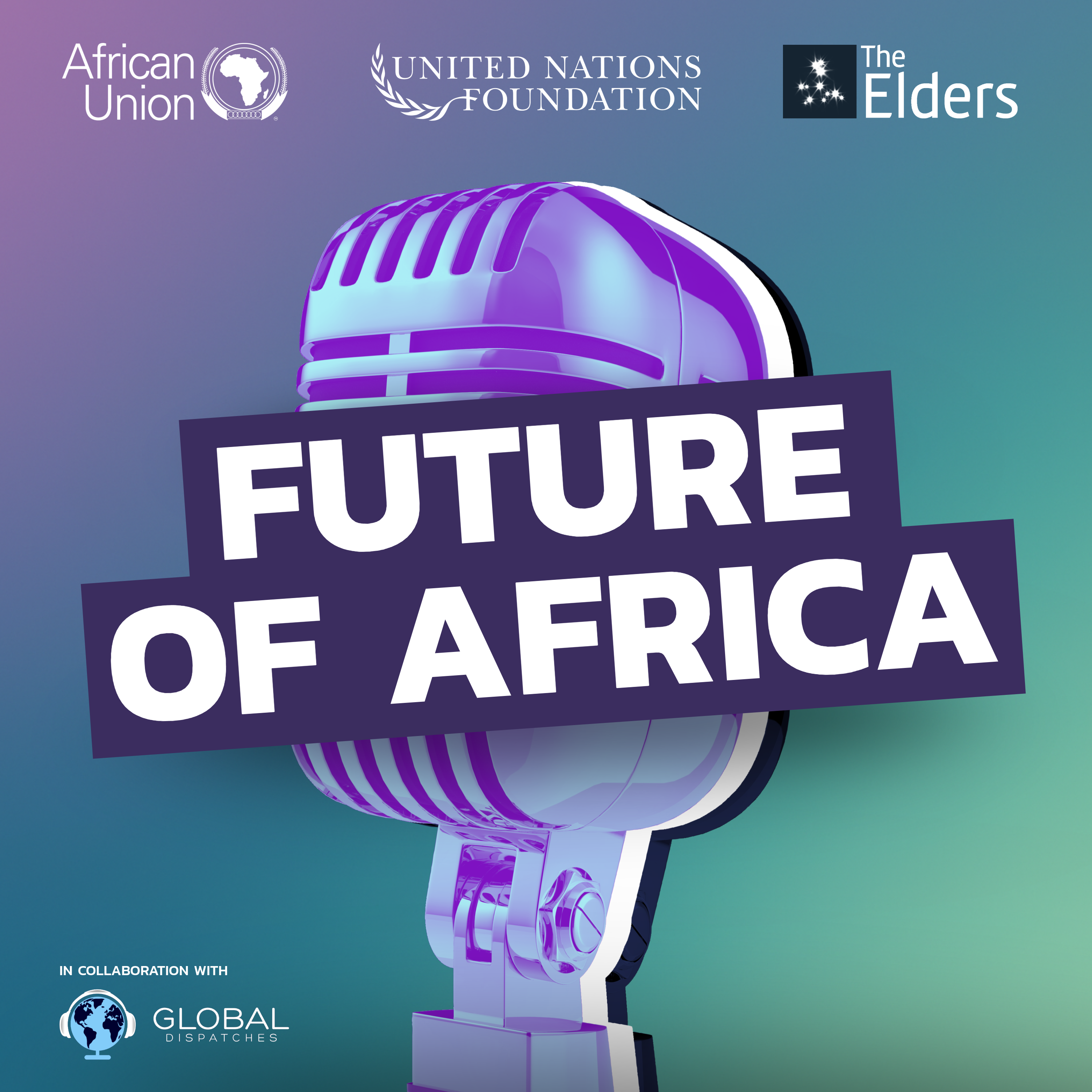
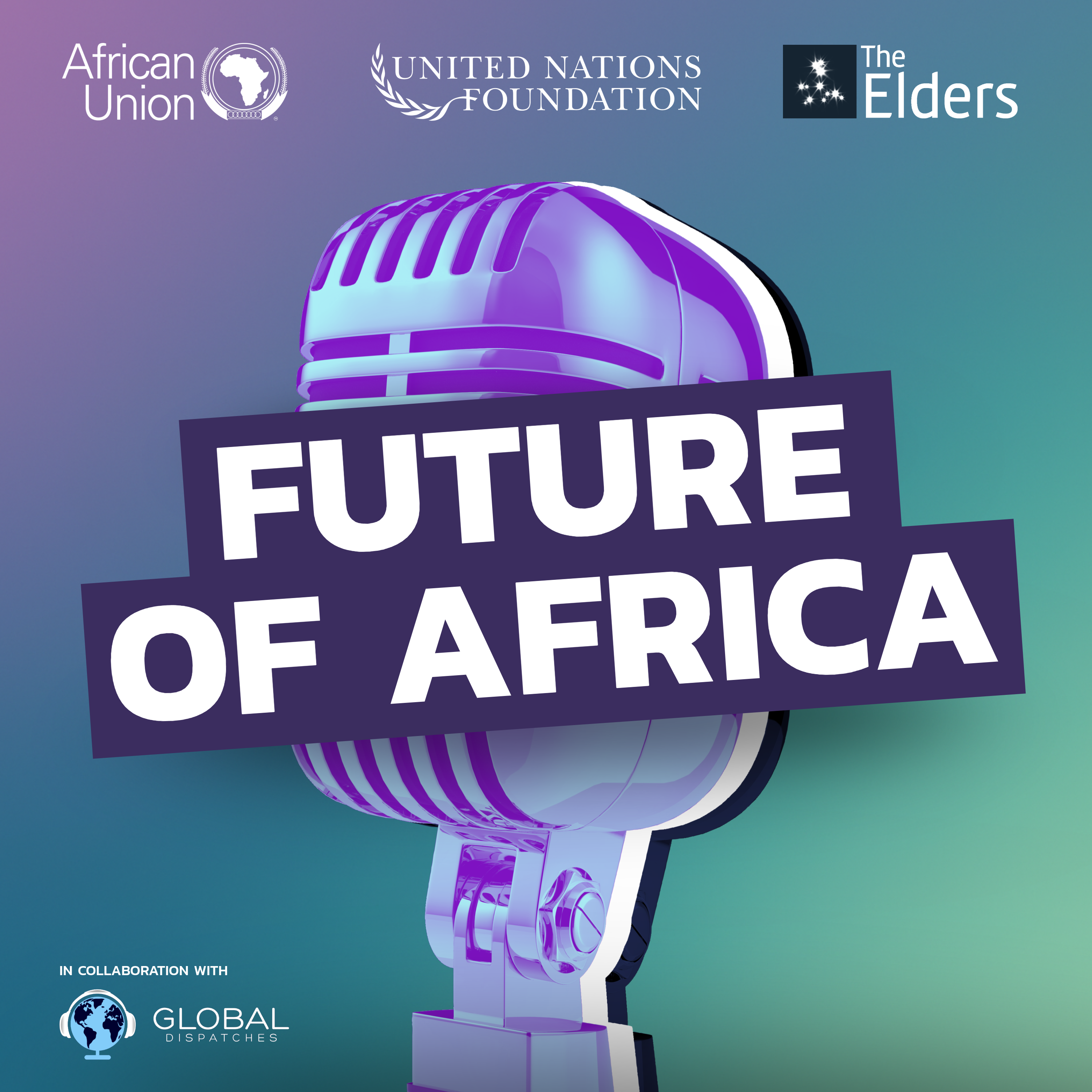
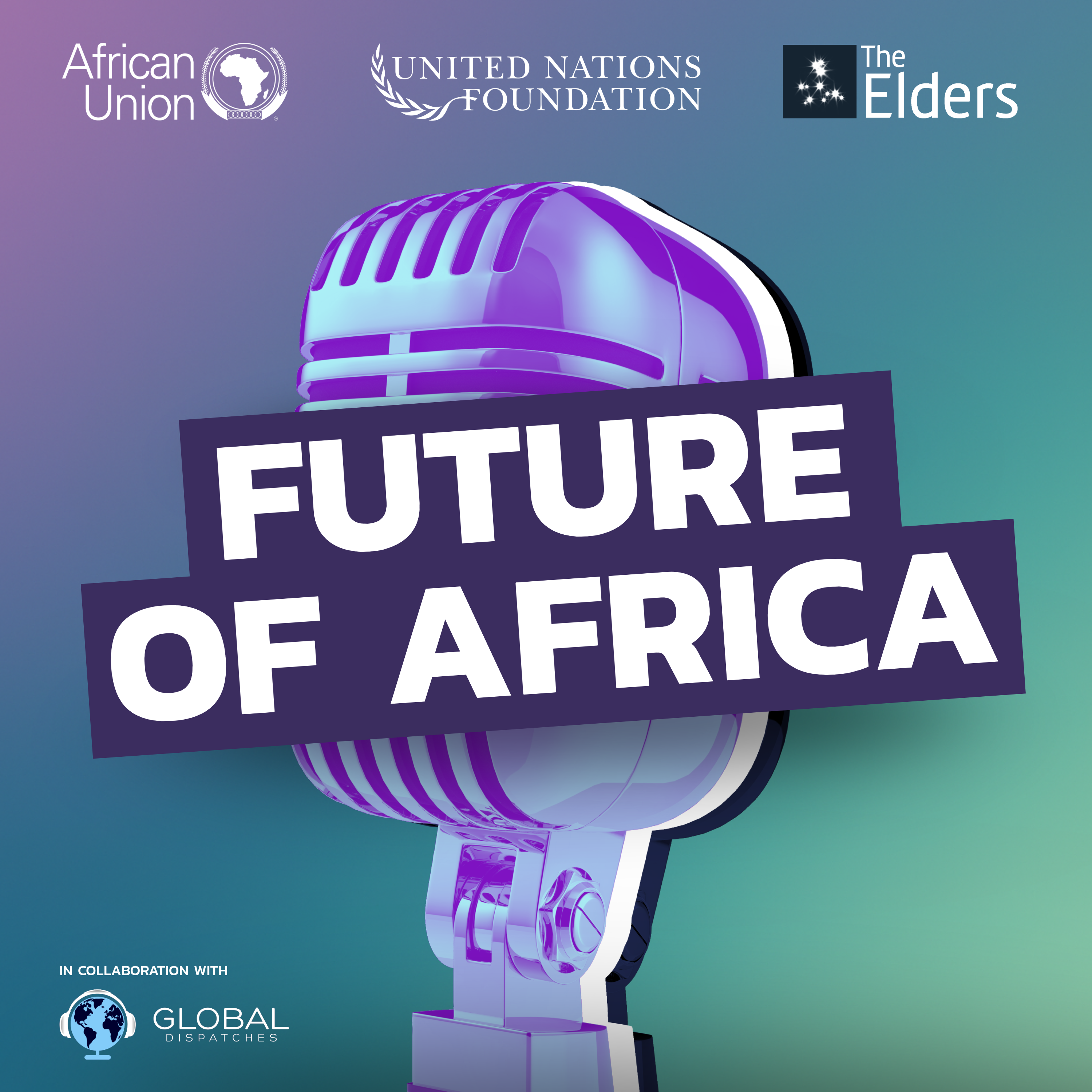
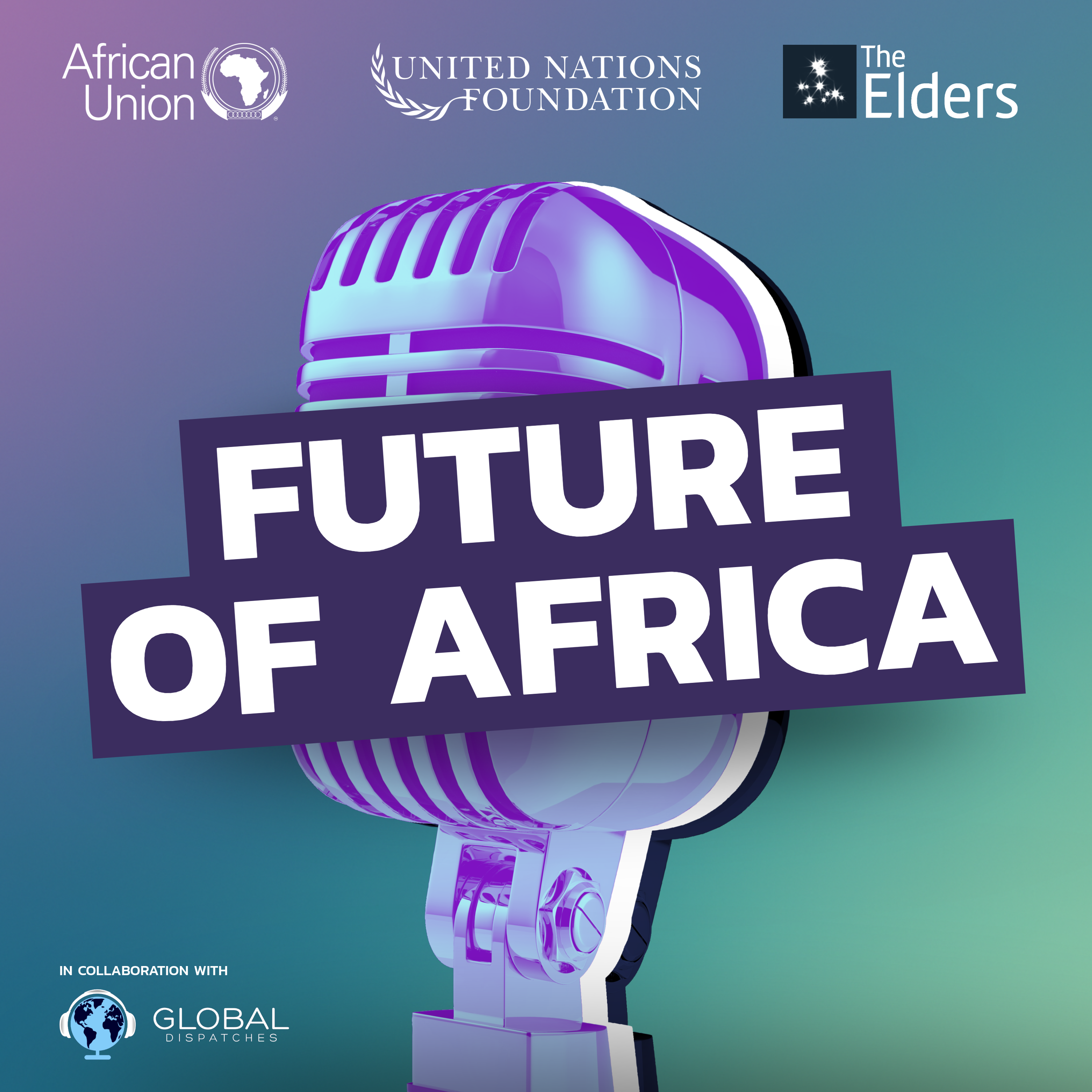



👍
Negar mortazavi is an Islamic republic apologist. women in Iran are being killed and this is the journalist you select to talk with, someone who has tried to whitewash regimes atrocities for decades, along with her NIAC friends. unfollowed. God knows how many more liars you have invited to your podcast and how much more lies you have spread. shame on you.
Hello, Thank you for this program. I always gain new perspectives when listening to your podcasts. As the GERD is a politically-tense topic for countries involved, specially Egypt, Sudan and Ethiopia, representatives from each company tend to have bias (generally-speaking). I recommend having a similar interview with an Egyptian and a Sudanese expert to gather all perspectives. Thanks, Maryam (from Egypt)
extremely biased and one sided opinions presented in this episode. not sure if this is topical for this podcast
broken source episode can't play?!